Happy Sunday and welcome to Giselle daydreams! I hope you enjoyed reading about Roman Holiday and La Dolce Vita as part of my cinema series where I write about five films which take place in Italy. Today, I’m writing about the third film from this series, and I chose to feature L’Eclisse. Enjoy!
L'Eclisse (The Eclipse in English), directed by Michelangelo Antonioni and released in 1962, is a seminal work in cinema history. The film is known for its exploration of existential themes, the alienation of modern life, the superficiality of modern life, and the complexities of human relationships, as well as its innovative visual style.
L'Eclisse follows Vittoria, played by Monica Vitti, a young woman who has just ended a long and emotionally taxing relationship with Riccardo, played by Francisco Rabal. As she navigates her newly single life, she meets Piero, played by Alain Delon, a confident and materialistic stockbroker. Despite a budding relationship, Vittoria and Piero’s connection remains superficial and unfulfilling, mirroring the broader themes of the film. Their relationship is marked by a sense of detachment and impermanence. The narrative in L’Eclisse is less focused on plot and more on mood and atmosphere, capturing the emotional and psychological states of its characters.
L’Eclisse presents some pivotal scenes which include the film’s opening scene with Vittoria breaking up with Riccardo. The quiet, tense atmosphere and the minimal dialogue set the tone for the film’s exploration of emotional disconnection and the complexities of human relationships. Later in the movie, the chaotic scenes in the Roman stock exchange, where Piero works, contrast sharply with the emotional voids in the characters' lives. This setting highlights the theme of materialism and the superficiality of modern life. Finally, the ending sequence, devoid of the main characters, focuses on empty urban spaces and everyday objects. This ending emphasises the themes of alienation and the existential emptiness of modern life. The absence of the protagonists in the concluding scenes underscores the impermanence and superficiality of their relationship.
Vittoria's journey through the film is marked by a profound sense of personal isolation. Her interactions, even with those she is close to, are marked by a lack of genuine emotional connection. This theme is underscored by her failed relationship with Riccardo and her tentative, detached connection with Piero. Vittoria and Piero's relationship is marked by its transience and superficiality. Despite the physical attraction and moments of passion, their connection lacks depth and permanence, highlighting the fleeting nature of human relationships in the modern world.
Piero's profession as a stockbroker, set against the backdrop of the stock exchange, symbolises the materialism and superficiality of modern life. The chaotic scenes depicting the frenzied activity of the stock exchange contrast sharply with the emptiness and triviality of the characters' personal lives.
Both characters exhibit a significant degree of emotional detachment, making their relationship more about momentary comfort and physical attraction than meaningful emotional connection. This detachment is a critique of the superficiality of modern romantic relationships.
Despite their busy lives, the characters are depicted as fundamentally empty and unfulfilled. This existential theme reflects Antonioni's critique of modern society’s focus on material success at the expense of emotional and spiritual fulfilment. Vittoria’s journey through the film is a search for meaning and connection in a world that feels increasingly meaningless and disconnected. Her existential angst is a central theme, reflecting broader existentialist concerns about the human condition. The film portrays a profound disillusionment with the modern world, where traditional values and deep emotional connections are overshadowed by materialism and superficial relationships.
The film frequently highlights the inadequacies and futilities of verbal communication between individuals. Conversations between characters often end in misunderstandings or fail to convey deeper feelings, underscoring the existential theme of human disconnection. Antonioni places significant emphasis on body language, silence, and the spaces between words to highlight the inadequacies of verbal communication. These non-verbal elements often speak louder than the dialogue.
Antonioni contrasts the natural world with the urban environment to underscore themes of alienation and disconnection. Vittoria's moments of contemplation in natural settings contrast with the impersonal, harsh urban landscape of Rome. The title L'Eclisse and the recurring motif of the eclipse symbolise obscuration and the fleeting nature of clarity and connection. The eclipse metaphorically represents the characters’ fleeting moments of understanding and connection, which are soon overshadowed by misunderstanding and alienation.
The modern, urban environment of Rome, depicted through stark and impersonal settings, amplifies the characters’ feelings of isolation and alienation. The cityscape often feels cold and indifferent, reflecting the emotional and internal voids within the characters. Antonioni contrasts natural settings with the urban environment to underscore themes of alienation and disconnection. Vittoria’s moments of contemplation in natural settings are juxtaposed with the impersonal and harsh urban landscape of Rome.
Antonioni uses architecture and urban spaces to reflect the characters' emotional states. The framing of characters against vast, empty spaces highlights their isolation and disconnection. The black-and-white cinematography by Gianni Di Venanzo enhances the film's mood of detachment and melancholy. The stark contrasts and use of light and shadow add to the film's existential themes. The film’s slow pacing allows a deeper exploration of the characters’ internal states. Antonioni’s focus on seemingly mundane moments emphasises the existential ennui experienced by the characters. The narrative structure, which lacks a conventional plot, mirrors the fragmentation of modern life and relationships. This structure encourages viewers to focus on mood and thematic content rather than story progression. The use of ambient sound, rather than a traditional musical score, grounds the film in a realistic, if disconcerting, soundscape. This technique adds to the feeling of alienation and unease. Silence is used effectively to highlight moments of introspection and emotional distance. The lack of dialogue in key scenes forces viewers to confront the emptiness and disconnection between characters.
L'Eclisse is a profound exploration of existential themes, utilising innovative cinematic techniques to delve into the alienation and disconnection of modern life. Antonioni's focus on visual composition, sound, and narrative structure creates a film that is as much about mood and atmosphere, as it is about plot and character. L'Eclisse remains a seminal work in cinema, offering a timeless reflection on the human condition in the modern world. Its themes continue to resonate, making it a powerful critique of the superficiality and emotional disconnection inherent in contemporary society.
I hope you enjoyed the third film from this cinema series. I’ll publish the fourth film in two weeks.
For those interested, you can visit ShopMy where I display all the products I bought and I currently use from skincare to haircare, and alongside wellness accessories and kitchen essentials.
Giselle xx



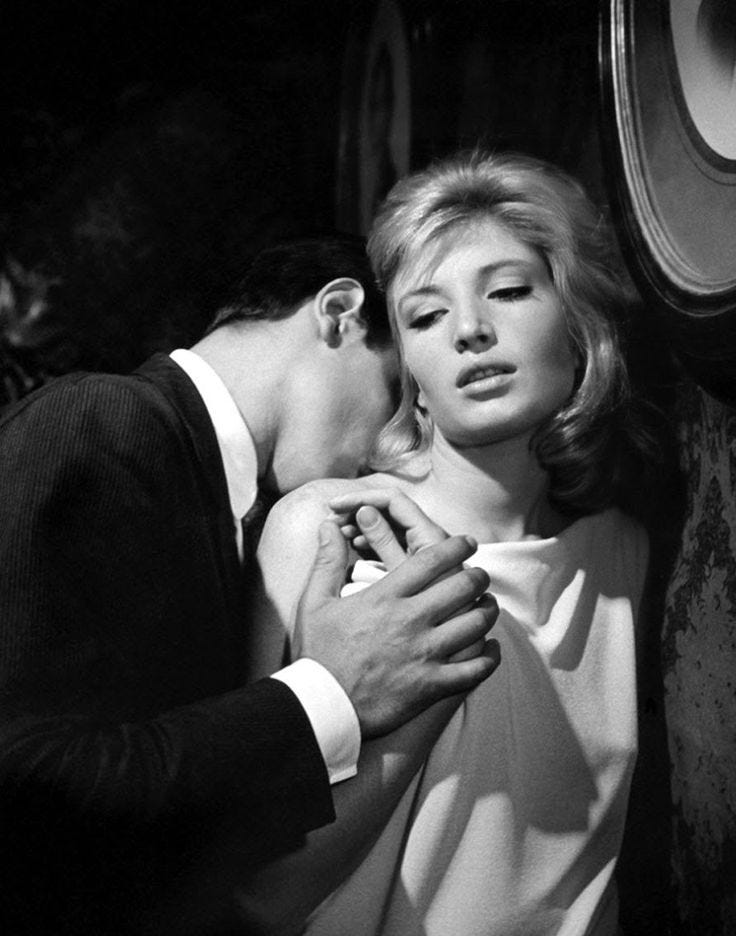
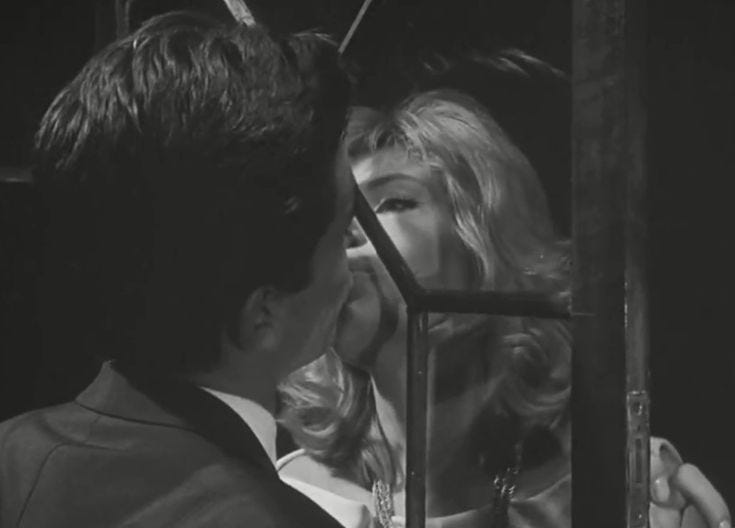
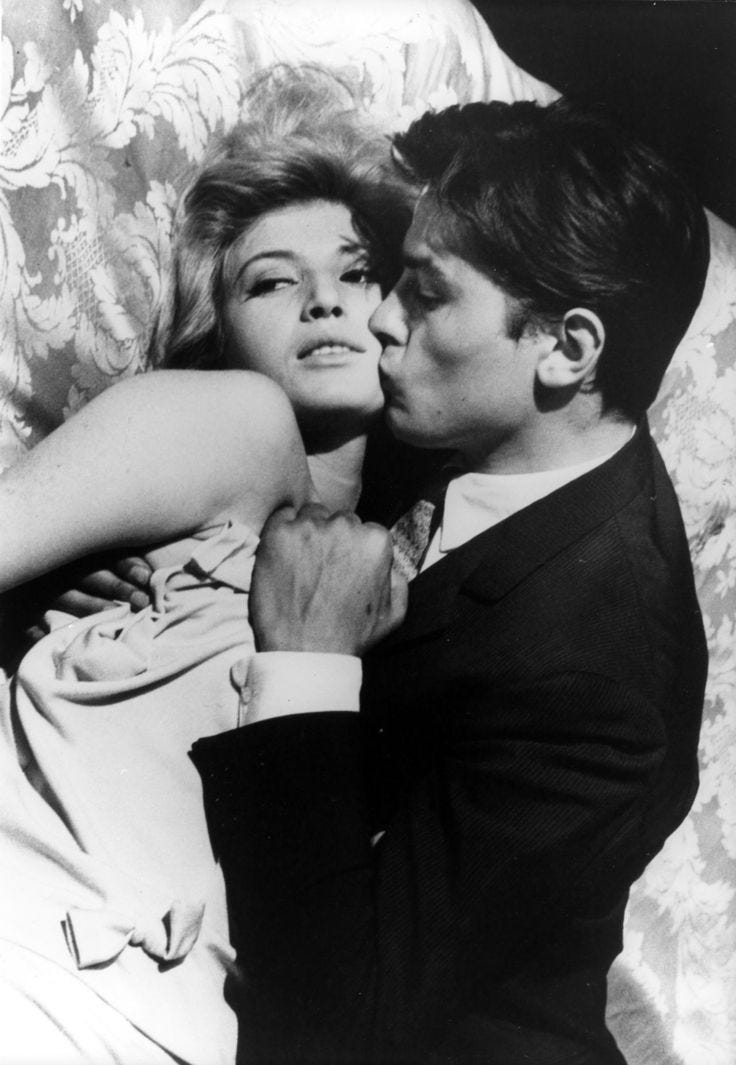
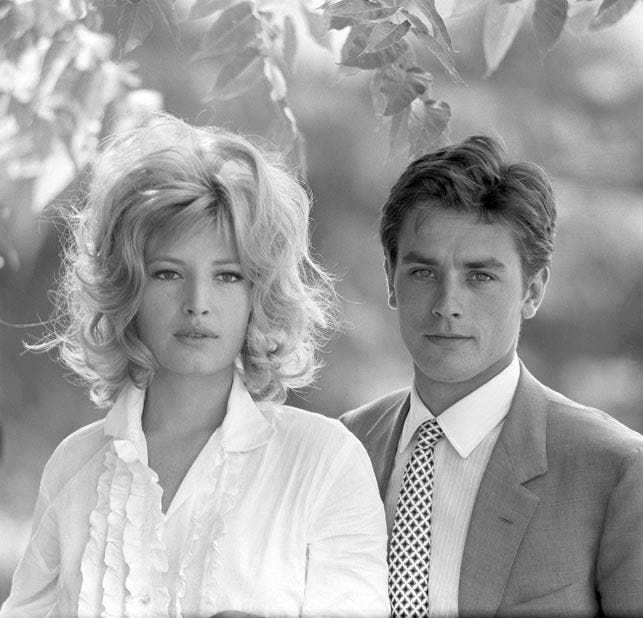
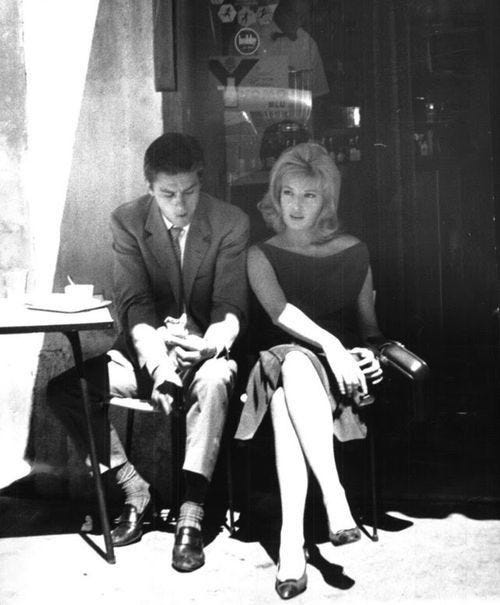
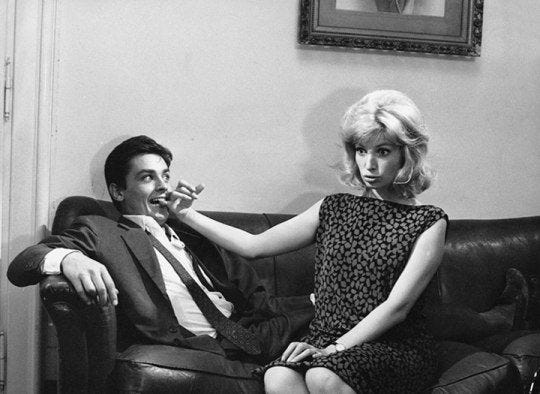
Have you seen the rest of Antonioni's "alienation trilogy"? I would love to hear your view on them. Your writing here is a fine piece
It’s free on YouTube. A slow burn masterwork.